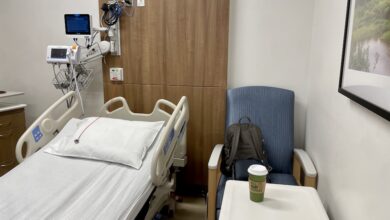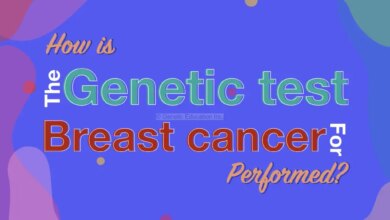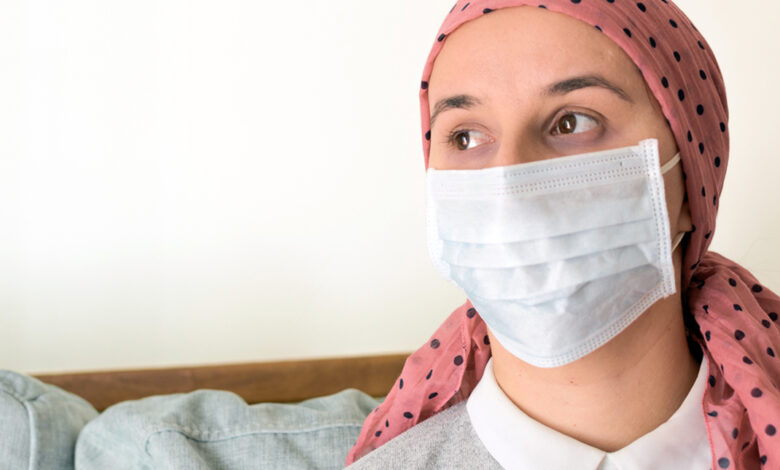
Breast cancer survivor and COVID vaccine: this in-depth exploration delves into the critical considerations for those navigating this intersection. From understanding vaccine safety concerns to exploring individual experiences, we unpack the complexities surrounding vaccination for breast cancer survivors.
This guide aims to provide a comprehensive overview of vaccine safety, efficacy, and potential impacts for breast cancer survivors. It considers the diverse range of treatments and their effects on the immune system, offering insights into vaccine choices, informed consent, and the importance of consulting healthcare providers.
Vaccine Safety Concerns for Breast Cancer Survivors
Navigating the complexities of health decisions after a breast cancer diagnosis can be daunting, especially when it comes to vaccinations. Many breast cancer survivors, particularly those undergoing or having recently completed treatment, have legitimate concerns about the safety and efficacy of vaccines, especially COVID-19 vaccines. Understanding these concerns and the scientific evidence surrounding them is crucial for informed choices.Breast cancer treatments often impact the immune system, potentially affecting the body’s ability to respond to vaccinations.
This is a critical factor to consider for survivors, as a robust immune response is essential for vaccine effectiveness. This discussion delves into the specific ways breast cancer treatments influence vaccine responses, along with the available scientific data on vaccine safety and efficacy for this population.
Common Vaccine Safety Concerns for Immunocompromised Individuals
Immunocompromised individuals, including breast cancer survivors, may experience a diminished ability to mount an effective immune response to vaccines. This can be due to various factors, including the specific cancer treatments received. Concerns often center around the potential for the vaccine to trigger adverse reactions or for the vaccine to be less effective in preventing disease. These concerns are valid and deserve careful consideration.
Immune System Impacts of Breast Cancer Treatments on Vaccine Response
Chemotherapy, radiation therapy, and targeted therapies used in breast cancer treatment can suppress the immune system. These treatments can impact various components of the immune response, including the production of antibodies and the activation of immune cells like T-cells. The degree of impact varies depending on the type and intensity of treatment. For example, some chemotherapy regimens can significantly impair immune function for several months after completion.
Understanding the specific timing and impact of these treatments on vaccine response is critical.
Scientific Evidence on Vaccine Efficacy and Safety in Breast Cancer Survivors
Numerous studies have examined the safety and efficacy of COVID-19 vaccines in breast cancer survivors. The general consensus from these studies is that the vaccines are generally safe and effective in this population. However, it’s essential to acknowledge that the immune responses may vary between individuals, and some survivors may require more careful monitoring post-vaccination. Research continues to explore the specific impact of different treatment regimens on vaccine response.
A critical component of this research focuses on determining the optimal timing of vaccination relative to treatment completion.
Importance of Individual Consultation with Healthcare Providers
Given the individual variability in treatment and immune response, it is crucial for breast cancer survivors to discuss vaccination with their healthcare providers. The decision of when and whether to receive a COVID-19 vaccine, or any vaccine, should be a collaborative one between the patient and their physician. They can assess the individual’s specific treatment history, current health status, and potential risks and benefits.
This personalized approach is essential to ensure the best possible outcome.
Comparison of Potential Risks and Benefits of COVID-19 Vaccination for Breast Cancer Survivors
| Factor | Potential Risks | Potential Benefits |
|---|---|---|
| Immune Response | Reduced antibody production or cellular immunity | Protection against COVID-19 infection and potential severe illness |
| Adverse Reactions | Local reactions (pain, swelling) at the injection site; mild systemic reactions (fever, fatigue) | Reduced risk of hospitalisation, death, and long-term complications from COVID-19 infection |
| Timing of Vaccination | Potential interaction with ongoing treatment | Optimal immune response after completion of treatment |
| Individual Variation | Different levels of immune suppression among survivors | Personalized recommendations based on individual health status and treatment history |
Specific Vaccine Types and Breast Cancer
Navigating the complexities of COVID-19 vaccination after a breast cancer diagnosis requires careful consideration of individual treatment histories and potential interactions. Understanding the various vaccine types and their potential impacts on the immune response is crucial for informed decision-making. This knowledge empowers breast cancer survivors to make choices aligned with their specific circumstances.Vaccine efficacy can be influenced by numerous factors, including the specific vaccine type, the individual’s immune status, and concurrent treatments.
Breast cancer treatments, particularly chemotherapy and radiation, can impact the immune system, potentially affecting vaccine response. Consequently, a tailored approach to vaccination is vital for maximizing protection and minimizing potential risks.
Vaccine Types and Their Potential Interactions
Different COVID-19 vaccines employ distinct mechanisms to induce an immune response. mRNA vaccines, such as those from Pfizer and Moderna, utilize messenger RNA to instruct cells to produce viral proteins, triggering an immune response. Viral vector vaccines, like those from Johnson & Johnson/Janssen, use a harmless virus to deliver genetic material, stimulating an immune response. Inactivated vaccines, while less common, use inactivated viruses.
Understanding these mechanisms is essential to evaluate potential interactions with breast cancer treatments.
Potential Differences in Vaccine Response
The impact of breast cancer treatments on vaccine response varies depending on the type of treatment. For instance, chemotherapy, by its nature of suppressing the immune system, may diminish the body’s ability to mount a robust response to vaccination. Radiation therapy, while not as profoundly immunosuppressive as chemotherapy, can also affect immune function in the treated area. Personalized strategies for vaccine administration and potential adjustments to treatment schedules may be necessary.
Factors Influencing Vaccine Effectiveness
Factors influencing vaccine effectiveness encompass the individual’s overall health, nutrition, and adherence to medical advice. A compromised immune system, a common consequence of breast cancer treatment, can hinder the vaccine’s ability to generate an effective immune response. Adequate nutrition and rest, crucial for maintaining immune function, become even more important for breast cancer survivors undergoing treatment. The specific timing of vaccination relative to cancer treatments is another critical factor.
Consultation with a healthcare provider can help determine the optimal schedule for vaccination to maximize effectiveness.
Informed Consent for Vaccination
Informed consent for vaccination involves a comprehensive discussion between the patient and their healthcare provider. The discussion should detail the benefits and potential risks of vaccination, including potential interactions with existing breast cancer treatments. This discussion should include a comprehensive explanation of the different vaccine types, their mechanisms of action, and their possible effects on the immune system.
The individual’s unique circumstances, treatment history, and any concerns should be carefully considered. Open communication and shared decision-making are essential for ensuring informed consent.
Being a breast cancer survivor, I’ve been really focused on staying healthy and getting vaccinated against COVID-19. It’s important to stay informed about these things, especially when you’re navigating the world of recalled children’s toys, like the Fischer Price sleeper toy. Recent recalls, such as the Fischer Price sleeper toy recalled what to know , remind us to always check for safety updates.
Ultimately, prioritizing health, whether it’s about vaccinations or toy safety, is crucial for everyone, especially those with health concerns.
Table: Vaccine Types and Potential Impacts on Breast Cancer Survivors
| Vaccine Type | Mechanism of Action | Potential Impact on Immune Response in Breast Cancer Survivors | Considerations |
|---|---|---|---|
| mRNA Vaccines (Pfizer/Moderna) | Use messenger RNA to instruct cells to produce viral proteins | Potentially affected by chemotherapy, but generally safe. May require adjusted timing relative to treatment. | Discuss with healthcare provider about optimal timing and potential need for booster doses. |
| Viral Vector Vaccines (Johnson & Johnson/Janssen) | Use a harmless virus to deliver genetic material | Potentially affected by chemotherapy, but generally safe. May require adjusted timing relative to treatment. | Discuss with healthcare provider about optimal timing and potential need for booster doses. |
| Inactivated Vaccines | Use inactivated viruses | Potentially less affected by immunosuppression compared to live-attenuated vaccines, but efficacy may vary. | Discuss with healthcare provider about potential efficacy and optimal timing. |
Breast Cancer Survivor Experiences and Perspectives
Navigating the COVID-19 pandemic presented unique challenges for breast cancer survivors, impacting their health decisions and well-being. Beyond the general anxieties surrounding the virus, survivors faced a complex interplay of physical vulnerabilities, treatment-related concerns, and emotional burdens. Understanding their experiences is crucial for fostering trust and providing appropriate support during future public health crises.The COVID-19 vaccination was a particularly sensitive issue for breast cancer survivors, as they often faced a range of questions and anxieties.
This section explores the diverse experiences and perspectives of breast cancer survivors regarding vaccination, considering the influence of treatment type and time since diagnosis, as well as the critical role of empathetic communication.
Treatment Type and Vaccination Decisions
Different breast cancer treatments can affect a survivor’s immune response and overall health, potentially influencing their vaccination decisions. For example, those who underwent chemotherapy may have weakened immune systems, raising concerns about vaccine efficacy and potential side effects. Conversely, survivors who had hormonal therapies might have different perspectives based on their specific treatment regimen. Careful consideration of these factors is essential when discussing vaccination with breast cancer survivors.
Time Since Diagnosis and Vaccination Decisions
The time elapsed since a breast cancer diagnosis is another significant factor impacting vaccination decisions. Early-stage survivors may feel more confident in their health and the benefits of vaccination, while those who have experienced more aggressive treatment or have had the disease for a longer time might have greater anxieties. Addressing these concerns with sensitivity and providing tailored information is key.
Emotional and Psychological Factors
The emotional and psychological impact of a breast cancer diagnosis can linger for years, potentially affecting vaccination decisions. Fear of recurrence, anxiety about potential side effects, and a history of adverse reactions to medications could all play a role in shaping a survivor’s perspective. Understanding these emotional factors is essential for empathetic communication and trust-building.
Importance of Empathy and Tailored Communication
Effective communication about vaccination with breast cancer survivors requires a delicate balance of empathy and factual information. Using language that acknowledges their experiences and concerns is vital. Instead of assuming a universal response, it’s crucial to tailor the conversation to the individual survivor’s specific treatment, time since diagnosis, and personal circumstances. Acknowledging their fears and providing personalized information empowers them to make informed choices.
Survivor Perspectives on COVID-19 Vaccination
| Survivor Profile | Rationale for Decision | Emotional Factors |
|---|---|---|
| Early-stage survivor, completed chemotherapy 2 years ago | “I felt confident in the vaccine’s safety and effectiveness, and I wanted to protect myself and others.” | Confidence in recovery, concern for community. |
| Late-stage survivor, undergoing immunotherapy | “I was hesitant due to concerns about my immune system’s response to the vaccine. My oncologist reassured me that it was safe, and I felt more comfortable getting vaccinated after that.” | Uncertainty about immune function, reliance on medical advice. |
| Survivor with a history of severe allergic reactions | “I carefully weighed the potential risks and benefits, consulting with my doctor extensively. I eventually decided vaccination was necessary, but I needed a controlled environment.” | Prior adverse reaction, need for precaution. |
Medical Advice and Recommendations: Breast Cancer Survivor And Covid Vaccine
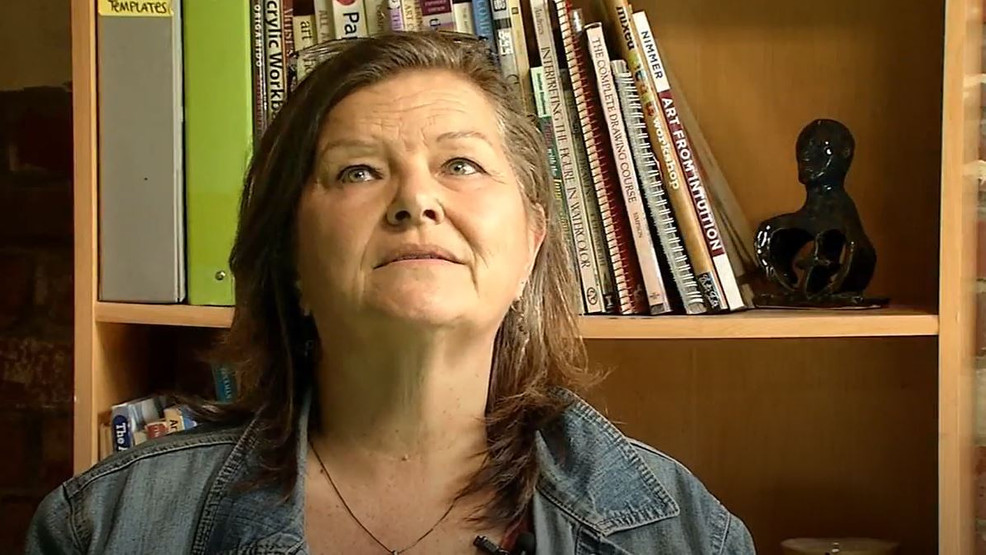
Navigating the world of COVID-19 vaccination as a breast cancer survivor can feel complex. Fortunately, clear guidelines from medical organizations provide a roadmap for making informed decisions. This section details current recommendations and the process for discussing vaccination with your healthcare provider.The COVID-19 vaccines have been proven safe and effective for the general population, and extensive research has specifically addressed their safety for breast cancer survivors.
Understanding the specific considerations and recommendations from medical experts can empower you to make the best choice for your health.
Current Recommendations for COVID-19 Vaccination
Major medical organizations, including the American Society of Clinical Oncology (ASCO) and the National Comprehensive Cancer Network (NCCN), strongly recommend COVID-19 vaccination for breast cancer survivors. These recommendations are based on extensive research demonstrating the safety and efficacy of the vaccines for this population. Vaccination helps protect against severe illness, hospitalization, and death from COVID-19.
So, I’ve been reflecting on my breast cancer journey and the COVID vaccine, and it got me thinking about the whole performance-enhancing drug debate. It’s fascinating how similar themes can emerge in seemingly disparate areas. For example, the recent Olympic figure skating scandal, with questions surrounding banned performance-enhancing drugs like meldonium, highlights the ethical considerations and potential for abuse when pushing the boundaries of human capability.
olympic figure skating scandal what to know about the banned drug Ultimately, both situations raise questions about fairness and the pursuit of excellence, and how these relate to the well-being of individuals. It’s definitely a thought-provoking connection, and I think it underscores the importance of responsible decision-making in healthcare and beyond.
Discussing Vaccination with Your Healthcare Provider
Open communication with your healthcare provider is paramount when discussing COVID-19 vaccination. A proactive approach ensures you receive personalized advice tailored to your specific circumstances.
Steps for Consulting Your Healthcare Provider
- Schedule a consultation with your oncologist or primary care physician to discuss your vaccination options.
- Provide your healthcare provider with a detailed medical history, including any current treatments, prior diagnoses, and any relevant allergies or sensitivities.
- Actively participate in the conversation, asking questions about potential risks and benefits specific to your situation. Clarify any uncertainties or concerns you may have.
- Discuss any potential interactions between the vaccine and your current medications or treatments.
- Obtain clear and concise answers to your questions and understand the specific recommendations for your individual situation.
Factors Considered by Healthcare Providers
Healthcare providers consider several factors when advising breast cancer survivors about COVID-19 vaccination. These factors include:
- Current treatment status: If undergoing chemotherapy or other active cancer treatments, the timing of vaccination may be discussed and optimized to minimize potential side effects.
- Type of cancer and its stage: The specific type and stage of breast cancer can influence the healthcare provider’s advice, and the potential interplay between the vaccine and the survivor’s immune system.
- Underlying health conditions: Other health conditions present in the survivor can impact the provider’s advice on the timing and type of vaccine. For example, pre-existing heart conditions may require special considerations.
- Previous vaccine responses: Past reactions to other vaccines or medical procedures will influence the provider’s approach and recommendations.
- Individual preferences and concerns: The provider values the patient’s preferences and concerns, providing personalized guidance that aligns with their understanding and choices.
Resources for Updated Information
The following resources offer updated information and guidelines on COVID-19 vaccination for breast cancer survivors:
| Organization | Website |
|---|---|
| Centers for Disease Control and Prevention (CDC) | cdc.gov |
| National Cancer Institute (NCI) | cancer.gov |
| American Society of Clinical Oncology (ASCO) | asco.org |
| National Comprehensive Cancer Network (NCCN) | nccn.org |
Addressing Misinformation and Concerns
Navigating the complexities of health information, especially during a pandemic, can be challenging. It’s crucial for breast cancer survivors, and everyone, to critically evaluate the sources of information they encounter, particularly regarding COVID-19 vaccines. Misinformation, often spread rapidly online, can sow doubt and anxiety, potentially impacting crucial health decisions. This section will explore common misconceptions surrounding COVID-19 vaccination and breast cancer, and provide strategies for discerning credible information.
Navigating the world as a breast cancer survivor is tough, and getting the COVID vaccine can be a sensitive topic. While I’ve read some conflicting opinions about the vaccine’s effect on cancer survivors, I’m still researching how it affects the body and, in some cases, whether it can trigger a manic episode in people with bipolar disorder (check out what is mania in bipolar for more info).
Ultimately, it’s crucial for survivors to talk to their doctors before making any decisions about the vaccine, ensuring their specific health needs are prioritized. This is an ongoing discussion, and I hope more research emerges soon.
Common Misinformation and Its Impact, Breast cancer survivor and covid vaccine
Misinformation about COVID-19 vaccines often targets vulnerable populations, including breast cancer survivors. This misinformation can stem from a variety of sources, including social media, unverified websites, and even well-intentioned but misinformed individuals. The impact of such misinformation can be profound, leading to vaccine hesitancy and potentially jeopardizing public health efforts. The spread of false claims can create a climate of fear and uncertainty, which can be especially detrimental to those already facing health challenges.
Verifying Information from Reputable Sources
To counter the spread of misinformation, it is essential to cultivate a habit of verifying information. This requires relying on credible sources, such as the Centers for Disease Control and Prevention (CDC), the World Health Organization (WHO), and reputable medical journals. These sources undergo rigorous review processes and adhere to strict standards of accuracy. Checking multiple sources and comparing information is also crucial.
When presented with conflicting information, favor those sources with robust scientific backing and established credibility.
Strategies for Countering Misinformation
Combating misinformation requires a multifaceted approach. A key strategy involves promoting media literacy, teaching people how to identify and evaluate the validity of information they encounter online. This includes looking for evidence of bias, checking the author’s credentials, and assessing the overall reliability of the source. It’s also vital to engage in constructive conversations with those holding differing viewpoints, emphasizing a respectful exchange of ideas while focusing on factual information.
Sharing accurate information through trusted channels, such as healthcare providers, social media accounts of credible organizations, and public health authorities, is essential.
Identifying and Addressing Misinformation Online
Identifying misinformation online requires a discerning eye. Look for vague language, unsubstantiated claims, and a lack of supporting evidence. Examine the source of the information. Is it a reputable news outlet, a medical professional, or a social media account with a history of spreading misinformation? If the source lacks credibility, treat the information with skepticism.
If possible, consult a healthcare professional for clarification. Be aware that some misinformation might use emotional appeals or scare tactics to manipulate readers. If the information triggers strong emotions, especially fear or anxiety, proceed with caution and verify the facts. Critically assess the context of the information, considering the overall message and how it relates to established scientific understanding.
Table: Common Myths and Misconceptions
| Myth/Misconception | Correct Information |
|---|---|
| COVID-19 vaccines cause breast cancer. | Numerous studies have shown no link between COVID-19 vaccines and an increased risk of breast cancer. Vaccines are developed through rigorous testing and review processes. |
| COVID-19 vaccines contain harmful ingredients. | The ingredients in COVID-19 vaccines are safe and have been extensively studied. These ingredients are used in many other medical products. |
| COVID-19 vaccines will alter your DNA. | COVID-19 vaccines do not alter DNA. They work by stimulating the immune system to produce antibodies that protect against the virus. |
| COVID-19 vaccines are experimental. | While new, COVID-19 vaccines have been thoroughly tested and rigorously reviewed by regulatory bodies to ensure safety and efficacy. |
Research and Future Directions
The journey of understanding COVID-19 vaccination’s impact on breast cancer survivors is an ongoing process. While current recommendations offer valuable guidance, further research is crucial to refine these recommendations and provide even stronger support for this vulnerable population. Addressing unanswered questions and exploring potential complexities will pave the way for more tailored and effective strategies.The ongoing research will be essential in confirming and refining the current recommendations for COVID-19 vaccination in breast cancer survivors.
Understanding the potential interactions between treatments, medications, and the immune response to vaccines is crucial. This includes the investigation of long-term effects and the optimal timing of vaccination within the context of individual patient circumstances.
Areas Requiring Further Research
A deeper understanding of the impact of specific cancer treatments on the immune response to COVID-19 vaccines is needed. This includes chemotherapy, radiation therapy, and hormonal therapies, as well as the potential influence of different types of breast cancer and its stage. Furthermore, the impact of pre-existing conditions, such as diabetes or heart disease, on the vaccine response in breast cancer survivors needs to be thoroughly examined.
Additionally, researchers should focus on the vaccine’s effectiveness in different age groups of breast cancer survivors and the potential influence of other concurrent health conditions.
Importance of Ongoing Research
Ongoing research is paramount to ensuring that recommendations for COVID-19 vaccination in breast cancer survivors are evidence-based and tailored to individual needs. This will help refine existing guidelines and develop more personalized vaccination strategies. Research findings can provide crucial insights into optimal timing, vaccine types, and potential adverse reactions specific to this population. For example, a study might reveal that a particular vaccine type elicits a stronger immune response in breast cancer survivors who have undergone specific treatments, allowing for targeted recommendations.
Current Research Studies
Several studies are actively investigating the relationship between COVID-19 vaccination and breast cancer survivors. These studies often analyze the antibody responses, cellular immunity, and overall protection against infection. Some research focuses on identifying potential vaccine-related side effects and their frequency in this population. Researchers are also investigating the impact of different vaccination schedules on immune response. This includes looking at the effectiveness of booster doses and the potential benefit of combining COVID-19 vaccination with other preventative measures.
Future Recommendations Based on Research
Future recommendations will undoubtedly be influenced by the results of these studies. If a particular research study reveals that a certain vaccine type is more effective in survivors with specific treatment histories, recommendations will be adjusted accordingly. The research findings will provide a more comprehensive understanding of the immune response, enabling the development of tailored vaccination strategies.
Table of Ongoing Research Areas
| Research Area | Description |
|---|---|
| Impact of Cancer Treatments on Vaccine Response | Investigating how various cancer treatments (chemotherapy, radiation, hormonal therapy) affect the immune response to COVID-19 vaccines. |
| Vaccine Effectiveness in Different Subgroups of Survivors | Examining the efficacy of different COVID-19 vaccines in breast cancer survivors based on factors like age, cancer stage, and type of treatment. |
| Long-Term Effects of Vaccination | Assessing the long-term protection and potential side effects of COVID-19 vaccines in breast cancer survivors. |
| Optimal Vaccination Timing | Determining the ideal timing of COVID-19 vaccination in relation to cancer treatments and other health conditions. |
| Personalized Vaccination Strategies | Developing tailored vaccination strategies based on individual characteristics and medical history of breast cancer survivors. |
Closing Notes
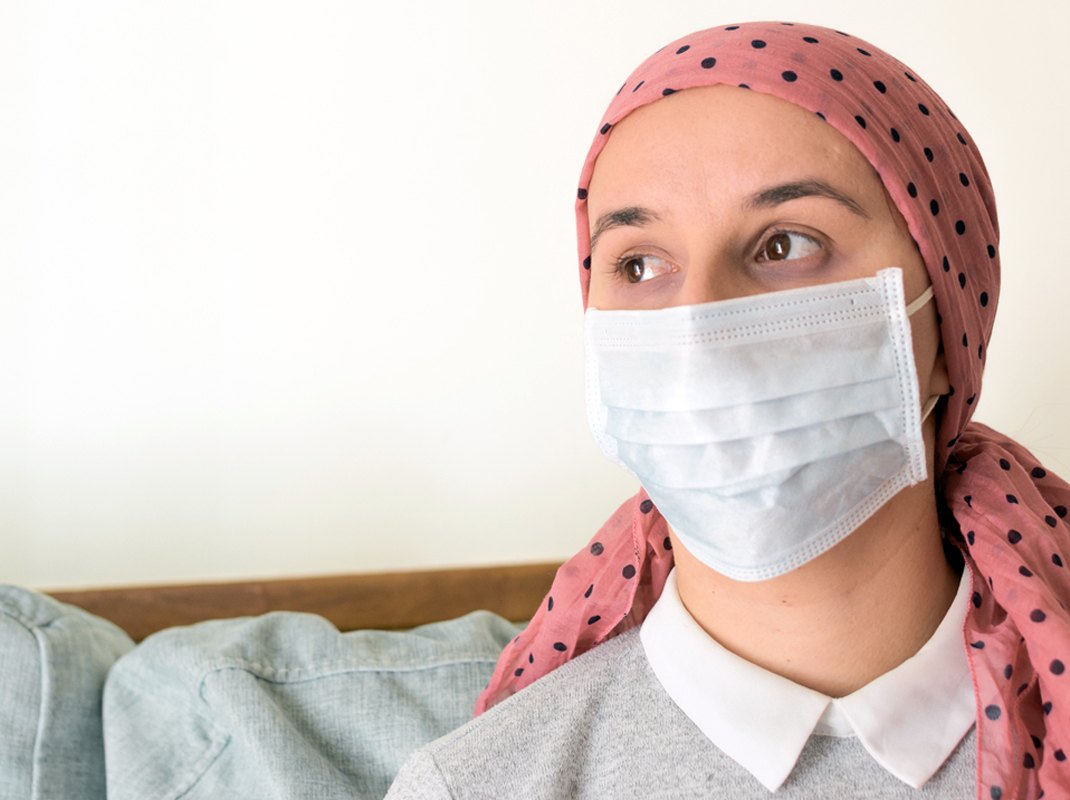
Ultimately, navigating the decision of COVID-19 vaccination as a breast cancer survivor requires a nuanced approach, prioritizing individual needs and healthcare professional guidance. This guide provides valuable information to empower survivors to make informed choices, supported by evidence-based knowledge and personal accounts.

